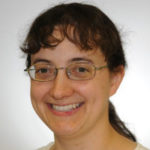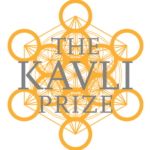Karen Davies, a staff scientist in the Molecular Biophysics and Integrated Bioimaging (MBIB) Division, is one of six Berkeley Lab scientists selected by the U.S. Department of Energy’s Office of Science to receive significant funding through its Early Career Research Program. The scientists are each expected to receive grants of up to $2.5 million over five years to cover year-round salary plus research expenses. Davies’ focus is on protein structure and bioenergetics, which includes the study of the flow of energy in living organisms. Her award is for “Structure of the Cyanobacterial NAD(P)H Dehydrogenase Complex (NDH-1) and Its Role in Cyclic Electron Flow and Carbon Dioxide Hydration,” selected by the Office of Basic Energy Sciences.
Women @ The Lab Awards
Six Biosciences employees have been selected by the Women Scientists and Engineers Council (WSEC) and the Diversity, Equity, and Inclusion (DEI) Office for recognition as part of the third Women @ The Lab awards. The program spotlights women at the Lab who demonstrate dedication, talent, STEM contributions, and commitment to the Lab’s mission.
Jennifer Doudna Shares 2018 Kavli Prize in Nanoscience for CRISPR-Cas9
The Kavli Prize in Nanoscience, given every other year by the Norwegian Academy of Science and Letters and the Kavli Foundation, was awarded this year to Jennifer Doudna, a faculty biochemist in the Molecular Biophysics and Integrated Bioimaging (MBIB) Division, and two colleagues who developed the powerful nanoscale tool CRISPR-Cas9 to edit DNA. The $1 million award, announced May 31, will be shared by Doudna, an HHMI investigator and professor of molecular and cell biology and of chemistry at UC Berkeley, Emmanuelle Charpentier of the Max Planck Society, and Virginijus Šikšnys of the Institute of Applied Enzymology in Vilnius, Lithuania. The 2018 Kavli Prizes will be awarded on September 4 in Oslo, Norway. “This prize recognizes the profound value of curiosity-driven research, and represents the contributions of our lab members. It’s an honor to share The Kavli Prize with my colleagues,” Doudna said. Read the UC Berkeley news release.
Banfield Elected to the Royal Society
Jillian Banfield, faculty scientist in the Earth and Environmental Sciences Area with a secondary appointment in the Environmental Genomics and Systems Biology Division, has been elected as a Fellow to the Royal Society. She is among fifty scientists who were selected for this honor in recognition of their exceptional contributions to science. Banfield, who is also a professor at UC Berkeley, studies the structure, functioning and diversity of microbial communities in natural environments and the human microbiome. Read more in the Royal Society press release.
Biosciences Researchers Honored by the National Academy of Sciences
Three scientists affiliated with the Biosciences Area have been recognized by the National Academy of Sciences (NAS), one as the recipient of an NAS award and two as newly elected members. On Sunday, the NAS formally presented its 2018 NAS Award in Chemical Sciences to Jennifer Doudna, a faculty biochemist in the Molecular Biophysics and Integrated Bioimaging (MBIB) Division. Judith Campisi, a biochemist affiliated with Biological Systems and Engineering Division, Ehud “Udi” Isacoff, an MBIB faculty biologist, are among the group of 84 new members elected to the NAS.
- « Previous Page
- 1
- …
- 14
- 15
- 16
- 17
- 18
- …
- 25
- Next Page »
Was this page useful?








